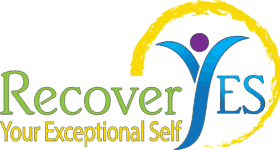There has been a tremendous amount of research done in recent years into the effects of addiction on the brain.It’s a fascinating study that anyone interested in understanding addiction would be interested in. Any type of addiction, whether it’s substance abuse or a process addiction, “hijacks” our brain’s normal functioning. The addictive substance basically tells the brain that it doesn’t have to do its job.

With normal functioning, our brain produces chemicals that create a similar experience to what happens with drug addiction. Neurotransmitters are stimulated and a “good feeling” is produced. As the addiction escalates, more and more of the substance is required to have a similar experience. It’s a vicious cycle.
And, since most addicts are using their addiction to avoid the pain they experience when they recall a traumatic event in their lives, blocking memories is now considered an effective alternative treatment for addiction.
Blocking Memory Relieves Symptoms of Addiction on the Brain
Laboratory research suggests memories can potentially be blocked in the brain, reducing the recall of traumatic experiences associated withPTSDand the reward memories linked to drug addiction.
Researchers from Canada’s Western University used a rat model to study a region of the brain called the pre-limbic cortex. They found that stimulating a subtype of dopamine receptor called the receptor in this region could completely prevent the recall of both aversive and reward-related memories.
Furthermore, neuroscientists were also able to actively suppress the spontaneous recall of both types of memories, without permanently altering memories. The findings are published online in the journalNeuropharmacology.
Humans process traumatic experiences individually. Some people may have experienced a major trauma and still cope well. Others, with a relatively less intense traumatic experience, may not be so lucky. The effects of trauma and addiction on the brain are still a mystery.
Do you or a member of your family suffer from the effects of trauma? It is not uncommon to develop addiction as a result. You are not alone – just ask for help.
Please comment, share or like so that people with the effects of trauma and addiction on the brain know where to get help.
